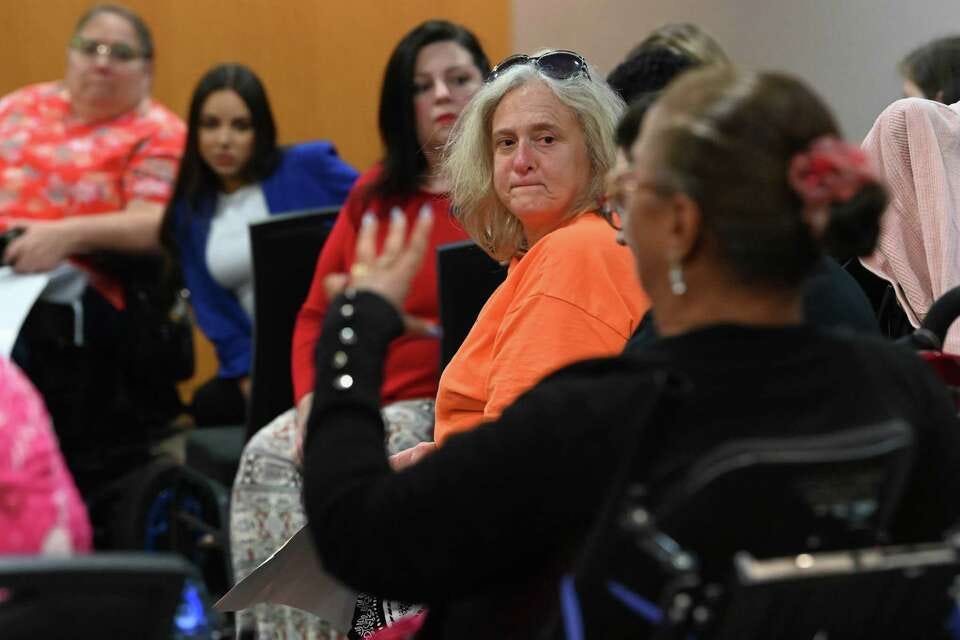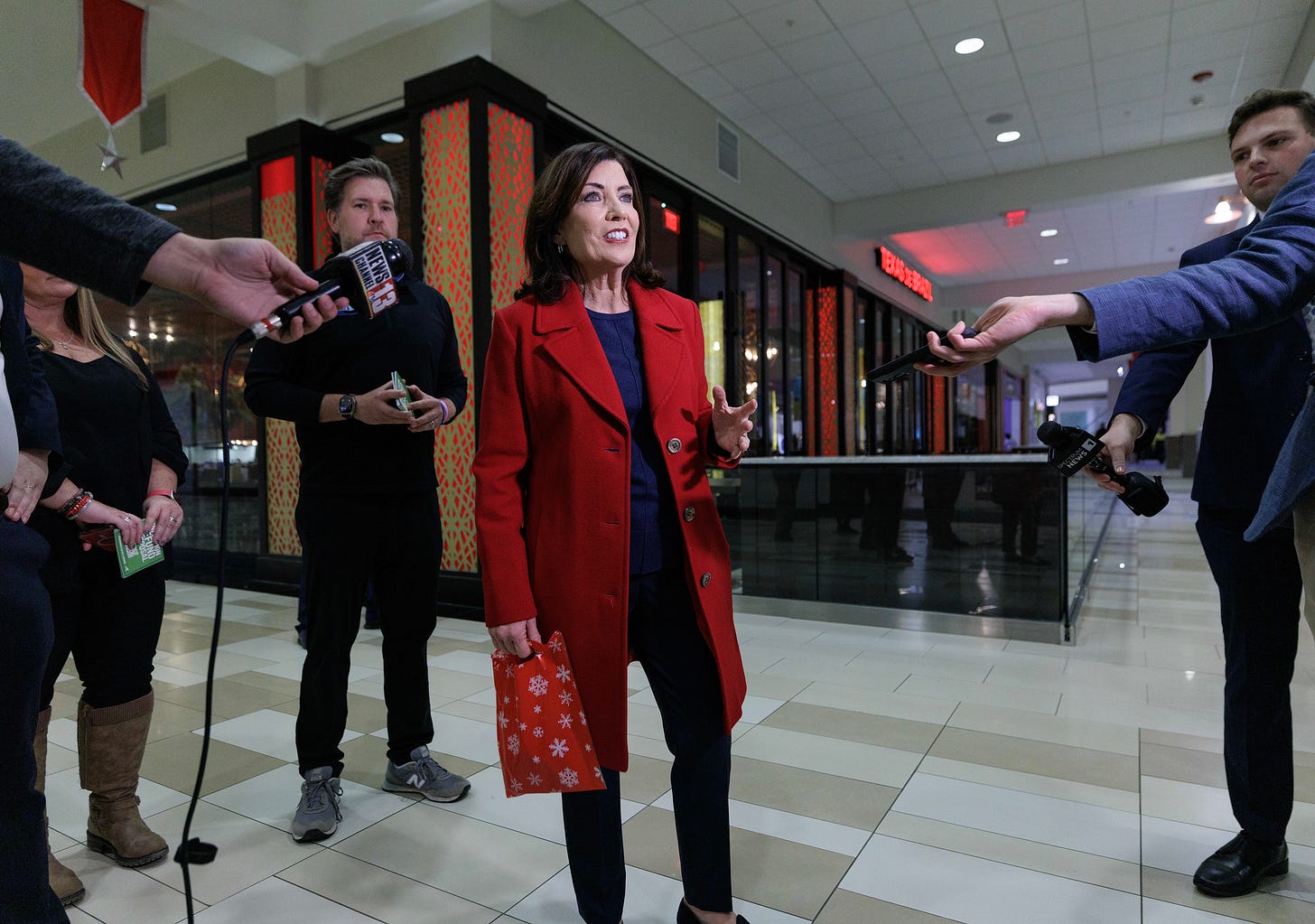Why Hochul was confronted over CDPAP while shopping at the mall
And three bills were signed by Hochul Tuesday, leaving 101 still on her desk.
Good afternoon — it’s Wednesday and International Migrants Day.
In today’s CapCon:
Hochul was confronted at a shopping mall Tuesday. Here’s why and where things stand with CDPAP, the program she was approached about.
Some environmental groups are mad at Hochul. Others sent her a letter Wednesday to thank her.
Hochul signed three bills Tuesday. Here are those and a link to the full list of bills still on her desk.
Bills on cannabis taxes, restaurant reservations and prescription drugs await a decision from Hochul.
❤️🩹 CDPAP strikes again with Hochul confrontation, lawsuit and new ad campaign
Momentum continues to build against the state’s scheduled transition of a $9 billion Medicaid program called CDPAP.
New York is moving to replace more than 600 companies that act as fiscal intermediaries between Medicaid and the aides paid through the program, with one company that plans to subcontract with a few dozen providers across the state.
That was approved by Hochul and the Legislature with the intention of saving money on the program, though no analysis has been released by the state
Advocates who support the current program have been opposed to that because they’re concerned the company — Public Partnerships LLC — will fumble the transition and leave them without the care they rely on.
Public Partnerships has tried to quell those fears through public information sessions on how the transition will work. The first steps start in just a few weeks with the transition scheduled to be completed by April 1 of next year.
If you’re a regular reader, you already know all of that. But I thought there might be some new interest because of a video that made the rounds on social media Tuesday. (Kudos to Politico’s Nick Reisman for posting the video.)
Hochul decided to go to Crossgates Mall in Albany to highlight her inflation rebate proposal but was confronted by Julie Farrar, a supporter of the CDPAP program.
“You’re talking about affordability and people I know and I love and myself are at risk of losing our services and our home care workers are now making minimum wage,” Farrar said to Hochul.
“You’ve been lied to,” Hochul said to Farrar, who rejected that. “We’re going to make sure you get the care you need.”
To be fair, if advocates are being lied to, they wouldn’t know it. The state hasn’t released details on how the transition will save money, including how much, and why the program is so costly in its current form.

🤔 Where the transition stands now and why subcontractors are upset
I’m going to take you inside negotiations between Public Partnerships and the subcontractors they’ve selected.
Nearly 30 subcontractors have been announced to work with Public Partnerships after the transition to keep the program consistent.
But there’s a problem: many of them apparently don’t like the terms that have been offered by Public Partnerships. Because of that, many were considering backing out of the arrangement last week, sources told me.
I can’t name who gave me this information because it’s technically supposed to be protected under a nondisclosure agreement, but it’s from a reliable source who’s close to these discussions.
There are at least two reasons why subcontractors have been hesitant to sign on.
Keep reading with a 7-day free trial
Subscribe to Capitol Confidential with Dan Clark to keep reading this post and get 7 days of free access to the full post archives.



